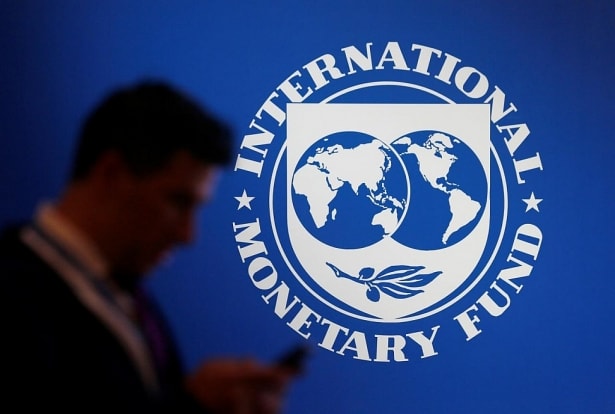International Monetary Fund: Global economic recession due to Covid-19 pandemic
(Baonghean.vn) - The Covid-19 pandemic is pushing the global economy deeper into its worst crisis since the Great Depression of the 1930s, taking a long time to recover. Governments and health officials need to work closely to prevent the pandemic from turning into a disaster.
This is the warning of the International Monetary Fund in its latest report published on Tuesday, April 14.
Economic growth plummets
In a report released on Tuesday (April 14), the International Monetary Fund (IMF) frankly warned of the risk of a global economic recession extending into 2021 if policymakers do not find a global solution to deal with the pandemic.
In this report, the IMF expects the world economy to shrink by 3% in 2020, even worse than the global financial crisis that occurred in 2008, completely opposite to the organization's prediction in January of a 3.3% increase in the global economy.
 |
| The Federal Reserve is pumping trillions of dollars into financial markets to prevent a capital "drought". Photo: Reuters |
In the US, the Senate has just passed a stimulus package worth more than 2 trillion dollars and the Federal Reserve has released trillions of dollars to stabilize the financial system, while the International Monetary Fund also predicts that the US economy will only grow 5.9% this year, the lowest decline since 1946.
Meanwhile, in China, the world's second largest economy and also the country first affected by the Corona virus epidemic, economic growth plummeted to 1.2%, the lowest growth rate since 1976.
The report also finds that countries where governments and central banks have taken strong measures to support workers and businesses are not optimistic. According to the IMF, Germany, the leading economy of Europe and an important link in the global trade chain, will shrink by 7% in 2020. The Canadian and British economies are predicted to decline by 6.2% and 6.5%, respectively.
Japan's economy, the world's third-largest, is expected to shrink 5.3% despite avoiding strict nationwide restrictions on travel, work and daily life to avoid freezing the economy as many countries around the world have done.
What solutions for countries?
European countries have pledged large sums to support businesses and households through the crisis by easing lending limits. Spain and Italy, the two countries hardest hit by the Covid-19 pandemic, have seen their economies shrink by 8% and 9.1% respectively. Both countries have stressed the urgent need to find financial resources to boost the continent's post-pandemic economic recovery.
 |
| International Monetary Fund logo. Photo: Reuters |
The IMF report also stated that the world is in the early stages of the worst economic crisis in nearly a century. Efforts to contain the pandemic will cause about 10 million workers worldwide to lose their jobs and push 10,000 businesses into bankruptcy. According to the IMF's assessment, the unemployment rate in the US will increase by 10.4% this year and 9.1% in 2021.
The IMF expects the global economy to pick up in 2021, with growth reaching 5.8% if the pandemic is contained in the second half of the year. However, the organization also warned that this outlook as well as actual figures are very uncertain, as efforts to control the Corona virus often take longer than expected. "The pandemic may be more persistent than expected... Moreover, the impacts of the health crisis on economic activity and financial markets have proven to be stronger and longer-lasting, testing the ability of central banks to stabilize financial systems and, further, to lift the burden after this shock," the IMF said.
“Consumer confidence is one example. Companies and households may change their buying behaviour, leading to a fall in demand and disruptions to supply chains. Reduced investment and bankruptcies could leave “scars” across the entire economy,” the report added.
The best way to mitigate the economic fallout now is for governments and health officials to step up cooperation, the IMF said. “Countries urgently need to coordinate to mitigate the spread of the virus and develop vaccines and medical therapies to stop the pandemic. No country can be considered safe from the pandemic until viable medical solutions are in place,” the IMF stressed.
 |
| The world economy is plummeting: Illustration photo. AFP |
The IMF also recommends that governments spend more on vaccine testing, enlisting retired health professionals, and purchasing ventilators and personal protective equipment. Trade protections on medical products should be lifted.
The IMF praised the fiscal measures taken by advanced economies such as Australia, France, Germany, Italy, Japan and the United States to respond to the pandemic, as well as those taken by China, Indonesia and South Africa. However, the organization said there is still more work to be done. “Fiscal measures will need to be stepped up if economic activity remains subdued or if the lifting of trade restrictions in countries remains weak.”
Governments should also provide subsidies to workers affected by the pandemic. “Countries should consider providing subsidies to workers in need so they can stay at home without fear of losing their jobs due to the pandemic,” the IMF report said.



.png)

.jpg)

